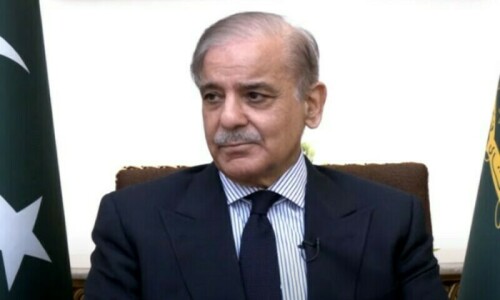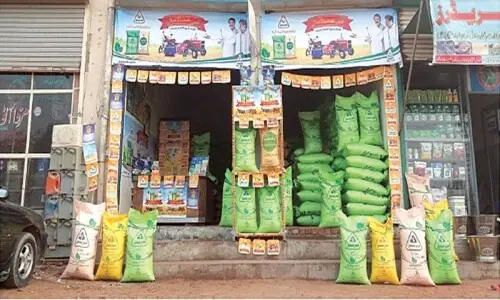ISLAMABAD: The government on Monday decided to keep three federal entities — Trading Corporation of Pakistan (TCP), Small and Medium Enterprise Development Authority (Smeda) and Pakistan National Shipping Corporation (PNSC) — in the public sector by declaring them as “essential state-owned enterprises (SOEs)”.
The decision was made at a meeting of the Cabinet Committee on State-Owned Enterprises presided over by Finance Minister Muhammad Aurangzeb, which also approved the appointment of the board of directors of EXIM Bank of Pakistan and Karachi Port Trust.
As part of the SOEs’ policy 2023 introduced on the directives of the International Monetary Fund (IMF), the federal government is required to categorise all SOEs into four categories to reduce their footprint on the economy and reduce financial losses. For this, each relevant ministry is tasked with presenting its rationale to the committee for assigning the SOEs to a specific category.
These categories include “strategic” or “essential” SOEs, which are critical for the execution of government policies and where the private sector is unable to assume those functions due to various reasons and hence should be kept in the government’s hands. This could be because of these SOEs’ large or intensive capitalisation, market stabilisation, natural monopoly or oligopoly service provider and where there is no effective regulatory oversight of their operations.
However, in such cases, the government must explore transformation options, such as outsourcing and management transfer options with sufficient safeguards embedded. Essential or strategic SOEs also include those established or required to be established under any law or statute or those established through government-to-government or intergovernmental arrangements.
Three other categories include commercial SOEs to be privatised, those required to be restructured and retained in the medium term, and those required to be restructured prior to privatisation.
Based on these guidelines, the cabinet committee on SOEs discussed a summary of the Ministry of Commerce regarding a plan to reinvigorate the Trading Corporation of Pakistan. It was decided that in view of the peculiar nature of the entity, the TCP may be categorised as an essential state-owned firm under the SOEs Policy, 2023. It was further decided that a detailed financial plan of the entity should be prepared, which should address the question of settlement of its liabilities.
Likewise, the committee also considered a summary of the Ministry of Industries and Production for categorisation of Smeda as an essential entity. “Keeping in view the importance of Smeda for the facilitation of SMEs, it was categorised as essential SOE,” an official statement said.
The cabinet committee also approved a proposal from the Ministry of Maritime Affairs to declare the PNSC as a strategic SOE. Moreover, it was also decided that the option for increased private shareholding in the PNSC may also be explored.
The SOE committee also took up another summary by the maritime ministry regarding the appointment of independent directors to the PNSC and recommended the appointment of proposed independent directors to the cabinet. They include Sultan Chawla as chairman and member, while other independent directors include Arif Habib, Khwaja Shahzeb Akram, Nadia Osman Jung and Khalil Ahmad.
The committee also discussed the reconstitution of the board of trustees of Karachi Port Trust (KPT) for 2024-26 as proposed by the maritime ministry. Except for Zakria Usman, whose nomination to the KPT board had already been rejected by Prime Minister Shehbaz Sharif, the committee cleared for cabinet’s approval the names of Fahimur Rehman Saigol, Khwaja Muhammad Zubair and Abdullah Zaki.
A summary of the Finance Division regarding the appointment of two independent directors on the board of the EXIM Bank of Pakistan was also approved. The committee endorsed the appointments of Ayesha Aziz and Imran Maqbool as independent directors on the bank’s board.
The meeting was also attended by Minister for Planning Development and Special Initiatives Ahsan Iqbal, Minister for Commerce Jam Kamal Khan, Minister for Housing and Works Mian Riaz Hussain Pirzada, Minister for Economic Affairs Ahad Khan Cheema, Minister for Maritime Affairs Qaiser Ahmed Sheikh, the SBP governor and the chairpersons of SECP, TCP and PQA.
Published in Dawn, September 3rd, 2024

































